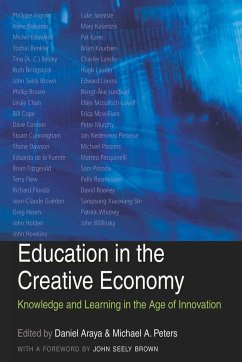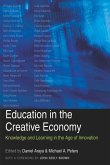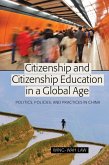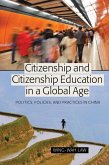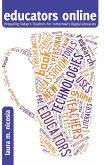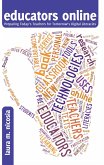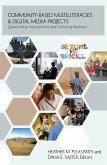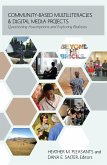Education in the Creative Economy explores the need for new forms of learning and education that are most conducive to supporting student development in a creative society. Just as the assembly line shifted the key factor of production from labor to capital, digital networks are now shifting the key factor of production from capital to innovation. Beyond conventional discussions on the knowledge economy, many scholars now suggest that digital technologies are fomenting a shift in advanced economies from mass production to cultural innovation. This edited volume, which includes contributions from renowned scholars like Richard Florida, Charles Landry, and John Howkins, is a key resource for policymakers, researchers, teachers and journalists to assist them to better understand the contours of the creative economy and consider effective strategies for linking education to creative practice. In addition to arguments for investing in the knowledge economy through STEM disciplines (science, technology, engineering and math), this collection explores the growing importance of art, design and digital media as vehicles for creativity and innovation.
«'Education in the Creative Economy' is a fabulous collection of essays by some of the most penetrating and insightful scholars now mapping the field of creative knowledge economy studies. The book's principal merit resides in the thoughtfulness of each of the contributions to this timely edited volume, and the probing connections and challenging questions that these scholars pose to the status quo organization of knowledge in schooling and the university today. This volume insistently urges educators to reconsider the ways we think about education and pedagogy and the ways we might profit from the cutting-edge developments in the domain of the creative industries. This book will be an indispensable text for general readers, students and scholars interested in the study of the creative knowledge economy for years to come.» (Cameron McCarthy, Professor of Educational Policy Studies, University of Illinois at Urbana-Champaign)
«At a time when new media and a host of new technologies are reshaping every aspect of life and society, there has been a lack of analyses capable of integrating and critically engaging these new forces. We not only live in an age of constant information flows and technological breakthroughs, but we also inhabit a society in which individual and social agency are under attack. Innovation is stripped from matters of equity and social costs and the results look less like a step forward for humanity than a step backwards into what Bertolt Brecht once called 'dark times.' Technologies and their diverse modes of knowledge do not merely overwhelm us, they increasingly erase matters of equity, justice, and social responsibility. What 'Education in the Creative Economy' does brilliantly is to remind us that learning is not merely the precondition for innovation, technological progress, and the over-hyped rise of an information economy, it is also the precondition for imagination, civic courage, and collective struggles that expand and deepen the process of democratization. 'Education in the Creative Economy' is a breakthrough book that critically engages a range of complex issues regarding the brave new world in which new technologies and knowledge production redefine the nature of the present. But it does more. In breathtaking fashion it dresses cogently and with great insight what this new regime of production, consumption, and learning might mean for a future in which democratic values, social justice, and political agency once again matter.» (Henry Giroux, Global Television Network Chair in the Department of English and Cultural Studies, McMaster University)
«A brilliant collection in substance, scale and variety. It is like a website in print. Michael Peters and Daniel Araya have done us a fine service in assembling all of this material in a single volume - one that is destined to be first portal on education and creativity for some time to come. The book is a lattice of diverse messages and interpretations, but all of the contributors share an engaged and enthusiastic realism, in which 'culture' and 'economy' are no longer separated into different boxes but are continually used to interrogate each other.» (Simon Marginson, Professor of Higher Education, Centre for the Study of Higher Education, University of Melbourne)
«This book brings together multiple perspectives on and creates a compelling argument for the role of creativity in economic growth and development. It examines how an eclectic mix of technology, talent and educational policy are vital for innovation and economic growth, and argues the need for new learning paradigms and for better links across academic disciplines and between universities and business. Increased and accelerating globalization in all areas
«At a time when new media and a host of new technologies are reshaping every aspect of life and society, there has been a lack of analyses capable of integrating and critically engaging these new forces. We not only live in an age of constant information flows and technological breakthroughs, but we also inhabit a society in which individual and social agency are under attack. Innovation is stripped from matters of equity and social costs and the results look less like a step forward for humanity than a step backwards into what Bertolt Brecht once called 'dark times.' Technologies and their diverse modes of knowledge do not merely overwhelm us, they increasingly erase matters of equity, justice, and social responsibility. What 'Education in the Creative Economy' does brilliantly is to remind us that learning is not merely the precondition for innovation, technological progress, and the over-hyped rise of an information economy, it is also the precondition for imagination, civic courage, and collective struggles that expand and deepen the process of democratization. 'Education in the Creative Economy' is a breakthrough book that critically engages a range of complex issues regarding the brave new world in which new technologies and knowledge production redefine the nature of the present. But it does more. In breathtaking fashion it dresses cogently and with great insight what this new regime of production, consumption, and learning might mean for a future in which democratic values, social justice, and political agency once again matter.» (Henry Giroux, Global Television Network Chair in the Department of English and Cultural Studies, McMaster University)
«A brilliant collection in substance, scale and variety. It is like a website in print. Michael Peters and Daniel Araya have done us a fine service in assembling all of this material in a single volume - one that is destined to be first portal on education and creativity for some time to come. The book is a lattice of diverse messages and interpretations, but all of the contributors share an engaged and enthusiastic realism, in which 'culture' and 'economy' are no longer separated into different boxes but are continually used to interrogate each other.» (Simon Marginson, Professor of Higher Education, Centre for the Study of Higher Education, University of Melbourne)
«This book brings together multiple perspectives on and creates a compelling argument for the role of creativity in economic growth and development. It examines how an eclectic mix of technology, talent and educational policy are vital for innovation and economic growth, and argues the need for new learning paradigms and for better links across academic disciplines and between universities and business. Increased and accelerating globalization in all areas

